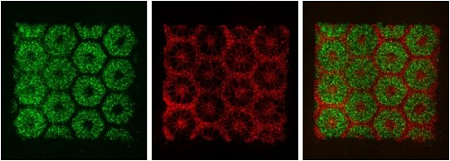3-D-Printed Liver Model Creates Opportunity for Personalized Drug Screening

The liver serves many essential functions including synthesis of vital proteins, breakdown of metabolic products, and detoxification of harmful substances. It has been challenging to develop a synthetic experimental model of the liver outside of organisms given its complex 3-D architecture and unique cellular niche microenvironments. A team of researchers and engineers led by lead author Xuanyi Ma and senior authors Shu Chien and Shaochen Chen from University of California, San Diego recently overcame this challenge by using a novel, rapid 3-D bioprinting technology and advances in stem cell research to organize stem cells derived from patient skin cells into a 3-D hexagonal, honeycomb-like structure and develop over 20 days into a stand-alone organ that mimics real human livers in structure and function. Compared to previous liver models, this new 3-D liver model shows better liver-specific product secretion, waste excretion, and expression of key enzymes for drug metabolism. It is also capable of mimicking the dual blood supply in the liver. Not only is this advance an unique alternative to animal models for studying liver physiology and disease states, it also presents an unprecedented opportunity to personalize drug testing and liver disease modeling with great potential to reduce cost and time required for clinical translational research. These findings were published in the journal Proceedings of the National Academy of Sciences.
References
- Xuanyi Ma, Xin Qu, Wei Zhu, et al. A deterministically patterned biomimetic muman iPSC-derived hepatic model via rapid 3D bioprinting. Proc Natl Acad Sci U S A. Published online February 8, 2016. DOI: 10.1073/pnas.1524510113







